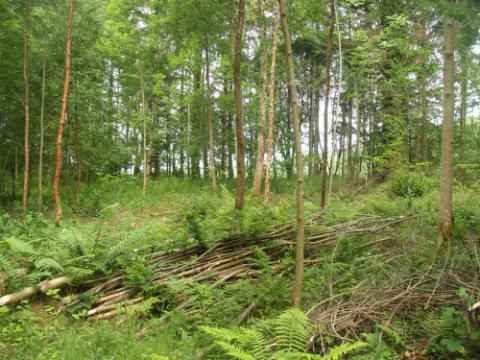A comparison of the relative environmental benefits of low impact machinery in small scale woodlands
Small woodlands in Wales are currently an undermanaged resource which have the potential to provide extra revenue to the landowner. Additionally, managing small woodlands could also benefit woodland ecology and support the provision of ecosystem services provided by the woodland environment. However, the size and cost of conventional machinery used for timber operations is not viable in small scale scenarios. There may also be a risk from environmental damage if the machinery is not suited to the site.
This EIP Wales project investigated low impact machinery options for providing access to woodlands with emphasis on the effects on soil structure and water runoff during the operations. The woodland areas on two farms were divided into four areas; a control area where no activity took place; clearing using conventional machinery (County tractor); clearing using an Alpine tractor and clearing using a tracked Bobcat vehicle. The volumes of water runoff during the operations was monitored as well as the loss of nutrients and sediments and hence the impact on soil structure.
The project showed that all machinery types successfully gained access to the woodland areas and none of them created lasting issues with soil compaction. The project highlighted the issues of measuring soil water run off as there is huge variation depending on topography, vegetation cover and severe weather events.
For further information on the project and the results see the report below.

